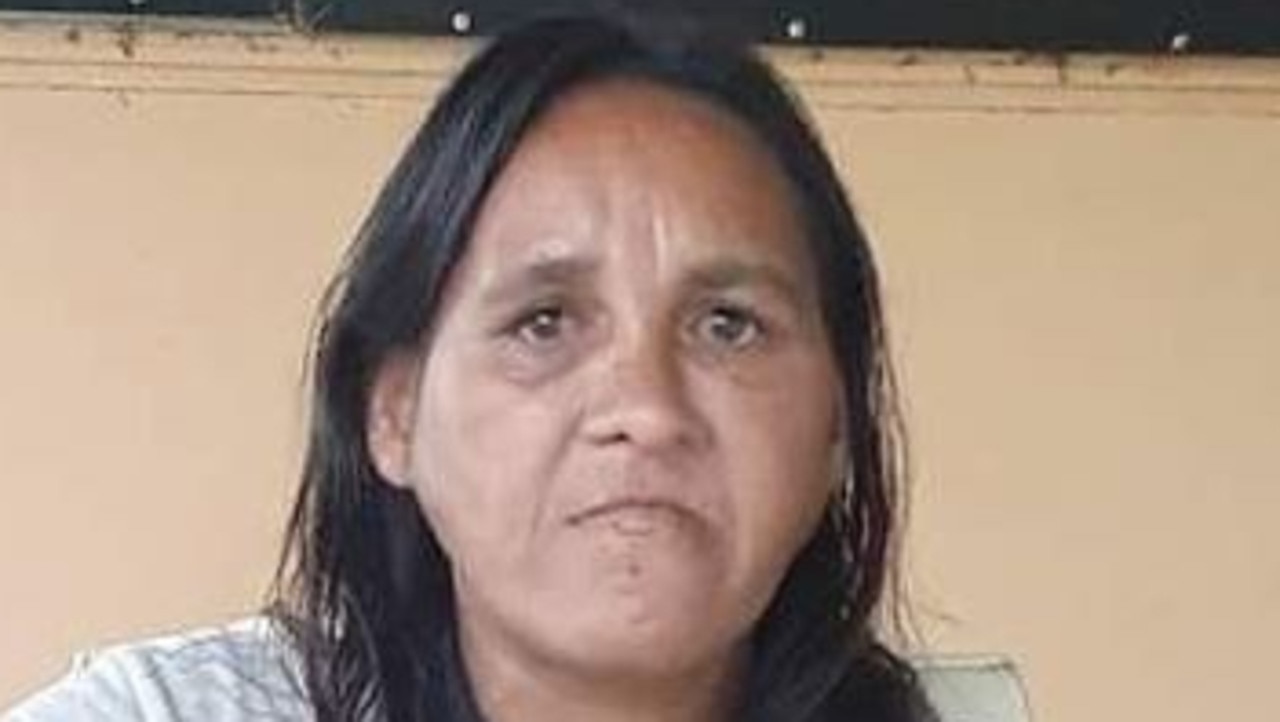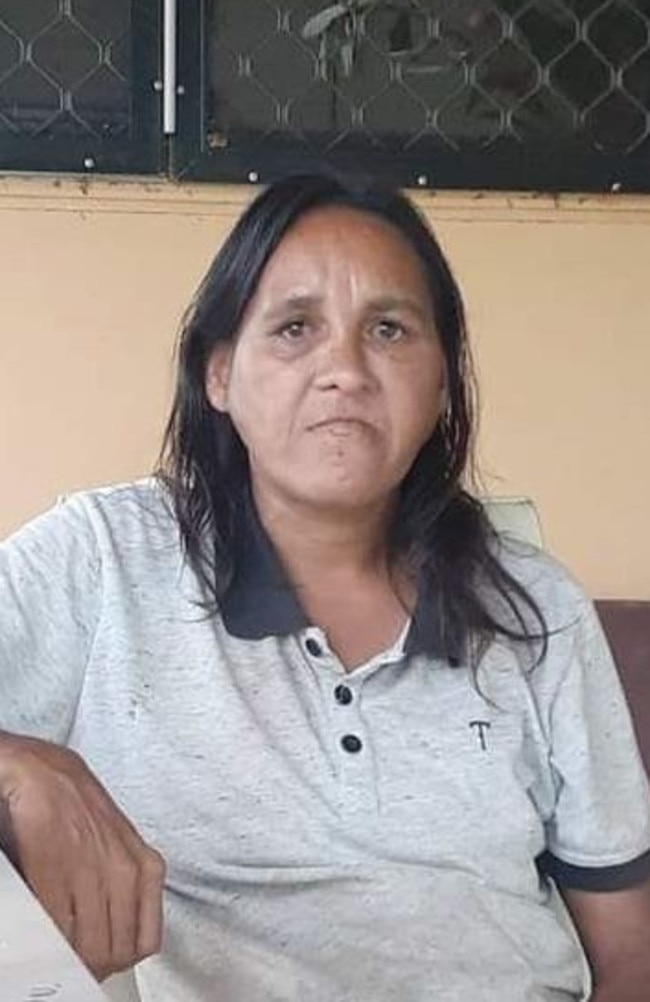Family of Kumanjayi Skeen share grief after alleged Jilkminggan murder
The family of a Western Australian woman allegedly murdered in a remote Territory town are fighting to keep her memory alive. ‘They need to know who she was’.

Aboriginal and Torres Strait Islander readers are advised that this article contains the names and images of Indigenous people who have passed, used with the permission of their families.
A grieving mother is pleading for her daughter’s body to be returned home, following her alleged murder in a remote Territory community.
A 46-year-old man is currently behind bars on remand, while NT Police continue to investigate the alleged fatal stabbing of the mother-of-five.
Her West Australian mother Doreen Hester said she did not want her daughter to be forgotten, or brushed away as an unknown victim.
“They need to know who she was,” she said.
Ms Hester said her daughter, known for cultural reasons as Kumanjayi Skeen, would always be remembered as the loving, funny, caring woman who could reduce her family to fits of laughter.
“Even though she was 45 years of age, she was still my baby,” she said through tears.
“I cry every day and every night. I cannot understand why this happened.
“None of us know really.”

The Djaru woman is now based in Kununurra and said she had raised Ms Skeen since she was just five-months old.
Ms Hester said the little girl who came into her Halls Creek home four decades ago struggled to speak due to a cleft palate, and as she got older her family noticed she had difficulty understanding concepts.
“She was handicapped,” Ms Hester said.
“Me or the family would follow her so we could listen in on the conversation and explain to her more better than white people do.”
Supported by her loved ones, Ms Hester said her daughter blossomed from a “happy-go-lucky kid” into a hilarious and happy woman.
“She loved her children, she cared about other people, she was always the life of the party,” Ms Hester said.
But her life changed after her firstborn son passed away.
Ms Hester said after her “fragile” daughter lost her son she started a new relationship with John Steven — the man later charged with her alleged murder.
Ms Hester said her daughter and Steven had an “on-again, off-again” de facto relationship, and had five children together.
“She worshipped the ground he walked on,” Ms Hester said.
The Djaru woman left her Halls Creek home on the edge of Western Australia’s Great Sandy Desert, for the small recently flooded town of Jilkminggan on the Roper River.
The community of just 250 people sits in the heart of the Territory’s Never Never Ward — named after an early bushman’s poem describing the Outback as the “wastes of the Never Never … where the dead men lie”.
It is here where the mother-of-five drew her last breath after allegedly being stabbed in the back by the man she loved.
It is alleged due to the attack just before midnight on Thursday July 6, Ms Skeen became the 80th woman to die in a domestic violence killing in the Territory since 2000.
Like Ms Skeen, more than 93 per cent of these women were Aboriginal.
Ms Hester said she felt that her daughter did not get the support she needed while in the Territory.
“(It is like) my daughter was just rubbish. Nobody cared about her,” she said.
“It’s the most saddest thing I know.
“Why are they forgetting about us Indigenous people? We have no say.”
Left with her grief in a town 830km from the Darwin morgue where her daughter’s body is now being kept, Ms Hester said she was left with one main question.
“Are they going to bring her back?,” she asked.
“This is where she belongs back in Halls Creek. She’s not going to be buried in Darwin or Jilkminggan.”
A NT Court spokesman said families could contact a grief counsellor from the Coroner’s office, where these issues like transport and victims compensation can be worked through.
The Attorney-General’s Department’s website said family members can claim up to $10,000 to help with funeral expenses or financial support through the Crime Victims Services Unit, while it is also understood some land councils help cover the repatriation costs.
But Ms Hester said because she was in a remote patch of Western Australia and illiterate — like 46 per cent of Aboriginal Australians — she would struggle to manage the interstate bureaucracy amid her grief.
“I can’t wrap my brains around anything at the moment,” she said.
“I’m just lost really.”





